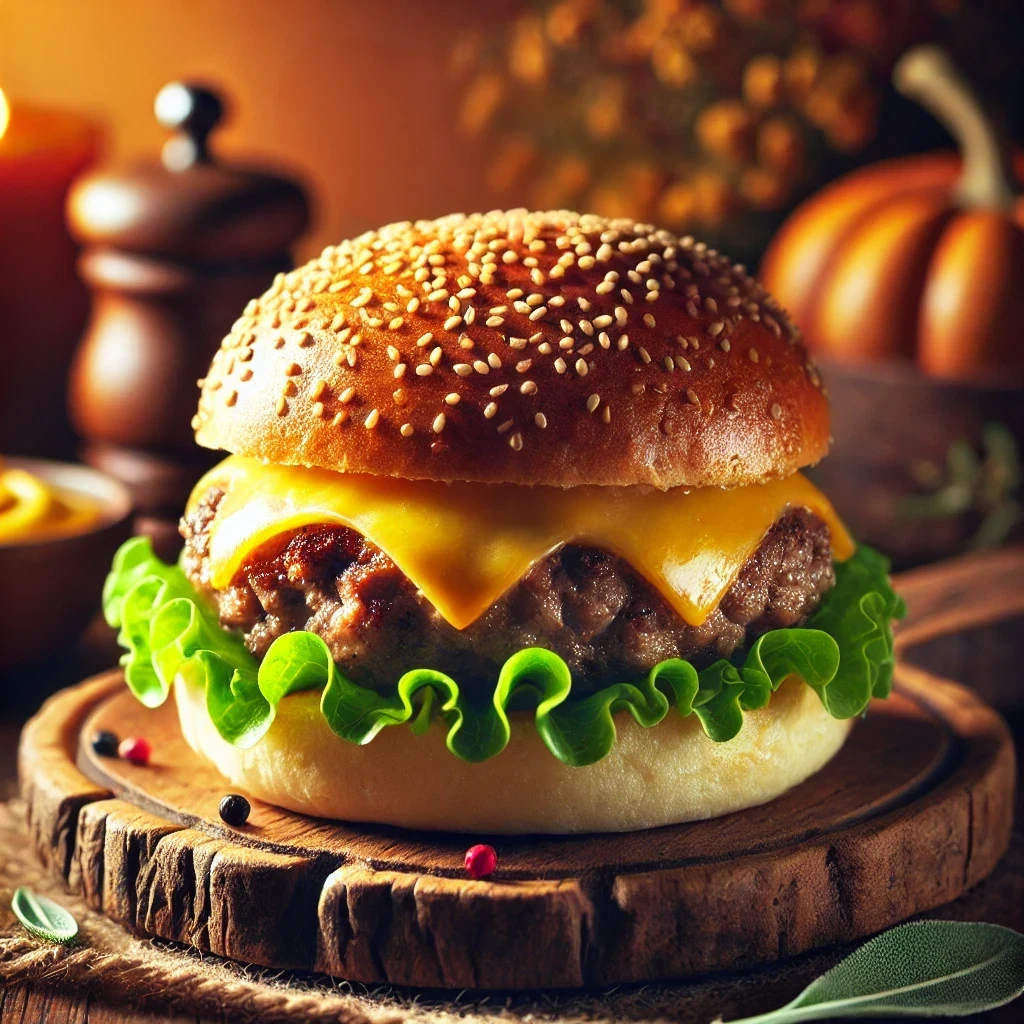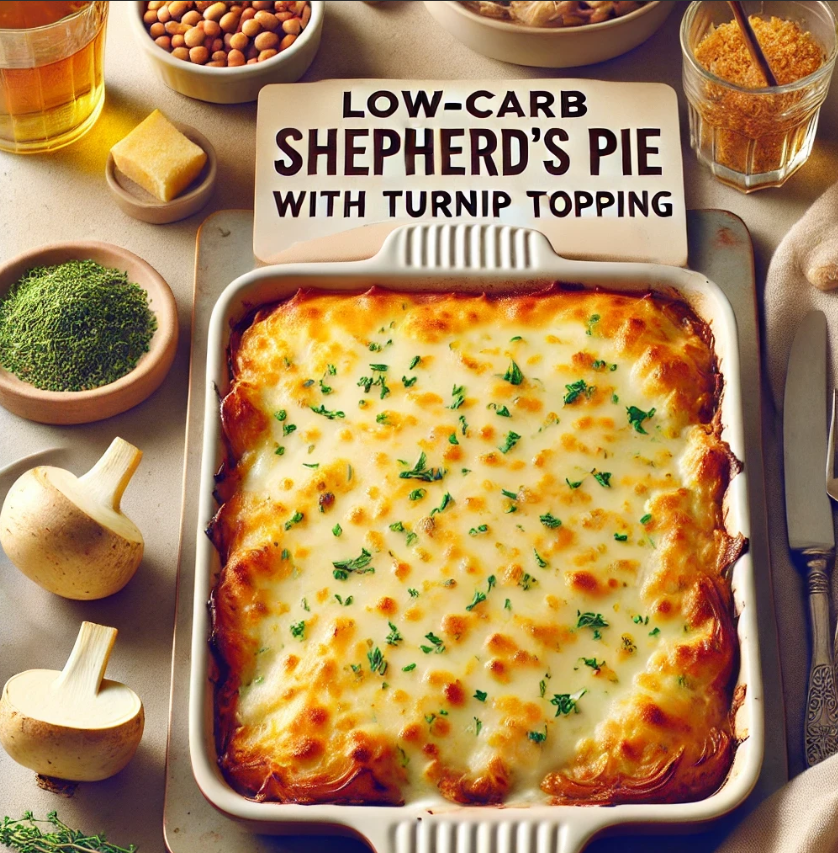
A Sweet Twist on a Classic: Apple-Infused Gourmet Burgers
Sometimes, the best recipes come from the simplest inspirations. For me, this burger was born from a casual conversation with my aunt. She recommended adding apple to a burger, and the idea intrigued me. Sweet and savory flavors playing together in a perfectly juicy patty? I had to try it.
At our house, gourmet burgers are a bit of a tradition. We love experimenting with blends of beef and pork, tweaking ingredients until we find the perfect balance. This time, we went a step further, adding minced Fuji apple right into the mix. The result? A juicy, flavorful burger with a subtle sweetness in every bite that had my family coming back for more.
Why Apple? Why Not!
What makes this burger so special isn’t just the apple—it’s the way all the flavors harmonize. The pork adds richness, the beef lends that classic burger taste, and the apple keeps everything juicy and tender. As if that weren’t enough, I topped mine with caramelized onions. Let me tell you: the sweetness of those onions paired with the savory burger is next-level delicious.
And for my son? He loved his with BBQ sauce and a lettuce wrap. We swapped out traditional buns for butter lettuce boats, and it was a game-changer—crisp, fresh, and perfect for those looking for a low-carb or gluten-free option.
The Perfect Pairings
This burger isn’t just versatile in how you serve it—it also fits seamlessly into any diet or occasion. Whether you’re grilling for a casual family dinner or hosting friends for a backyard gathering, this recipe shines.
For a special touch, I’d serve it alongside a cold salad—something crisp and refreshing to balance the warmth of the burger. A simple cucumber and dill salad or a tangy slaw would pair beautifully.
Tips for Success
- Pick the Right Apple: I recommend Fuji apples for their natural sweetness and firm texture.
- Squeeze the Apple: Removing excess moisture is key to keeping the burgers from falling apart.
- Top It Right: Caramelized onions are a must-try. Trust me, they bring out the best in this burger.
- Be Gentle: Mix the burger ingredients gently to avoid overworking the meat, which can make the patties tough.
A Burger for All Seasons
Whether you’re looking for a fresh take on classic comfort food or a dish that bridges dietary preferences, this apple-infused burger hits the mark. It’s an easy way to impress your family or guests without straying too far from the familiar.
The next time you’re in the mood for a gourmet twist, give this recipe a try. Who knows? It might just become your new favorite way to enjoy a burger.
Have you tried adding apple to your burgers? Or maybe you have your own favorite gourmet burger twist? Share your ideas in the comments—I’d love to hear them!
RECIPE: Apple-Stuffed Pork & Beef Burger
Description A juicy, flavorful burger that combines ground beef, pork, and minced apples mixed directly into the patty for moisture and subtle sweetness throughout every bite.
Ingredients
For the Burger Mix:
- 1 lb grass-fed ground beef (80/20)
- 1/2 lb ground pork
- 1 Fuji apple, finely minced or grated
- 1 tablespoon fresh sage, minced
- 2 cloves garlic, minced
- 1 teaspoon salt
- 1/2 teaspoon black pepper
- 1 tablespoon Worcestershire sauce
- 1 teaspoon Dijon mustard
- 1/4 teaspoon ground cinnamon (optional)
For Serving:
- 6 slices sharp cheddar cheese
- Butter lettuce
- Additional Dijon mustard
- Low-carb buns (optional)
Equipment
- Large mixing bowl
- Box grater or food processor (for apple)
- Grill or large skillet
- Meat thermometer
- Paper towels
Preparation Time
- Prep: 15 minutes
- Cook: 10-12 minutes
- Total: 25-30 minutes
Servings 6 burgers
Instructions
- Grate or finely mince apple. Place in paper towels and squeeze out excess moisture.
- In a large bowl, combine:
- Ground beef
- Ground pork
- Prepared apple
- Sage
- Garlic
- Salt
- Pepper
- Worcestershire sauce
- Dijon mustard
- Cinnamon (if using)
- Gently mix with hands until just combined. Don’t overmix.
- Form into 6 equal patties, making a slight depression in center.
- Let patties rest 10 minutes at room temperature.
- Heat grill or skillet to medium-high.
- Cook patties:
- 5-6 minutes first side
- Flip and add cheese
- 4-5 minutes second side or until internal temperature reaches 160°F
- Rest 3-5 minutes before serving.
Notes
- Squeeze apple well – too much moisture will make burgers fall apart
- Can use food processor for apple, but don’t puree
- Mix meat gently to keep burgers tender
- Perfect for fall grilling
- Can make ahead and freeze
- The apple adds moisture and helps keep burgers juicy
- If mixture feels too wet, add 2-3 tablespoons almond flour
- Great with caramelized onions as topping
- Consider adding crispy bacon on top




